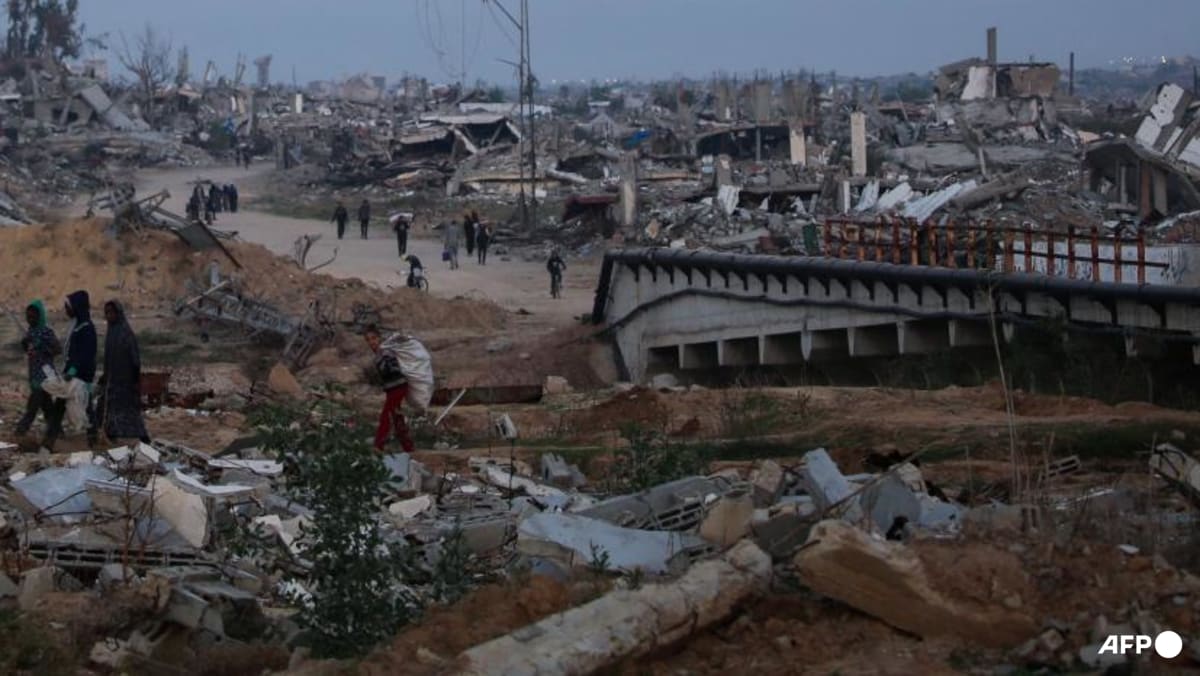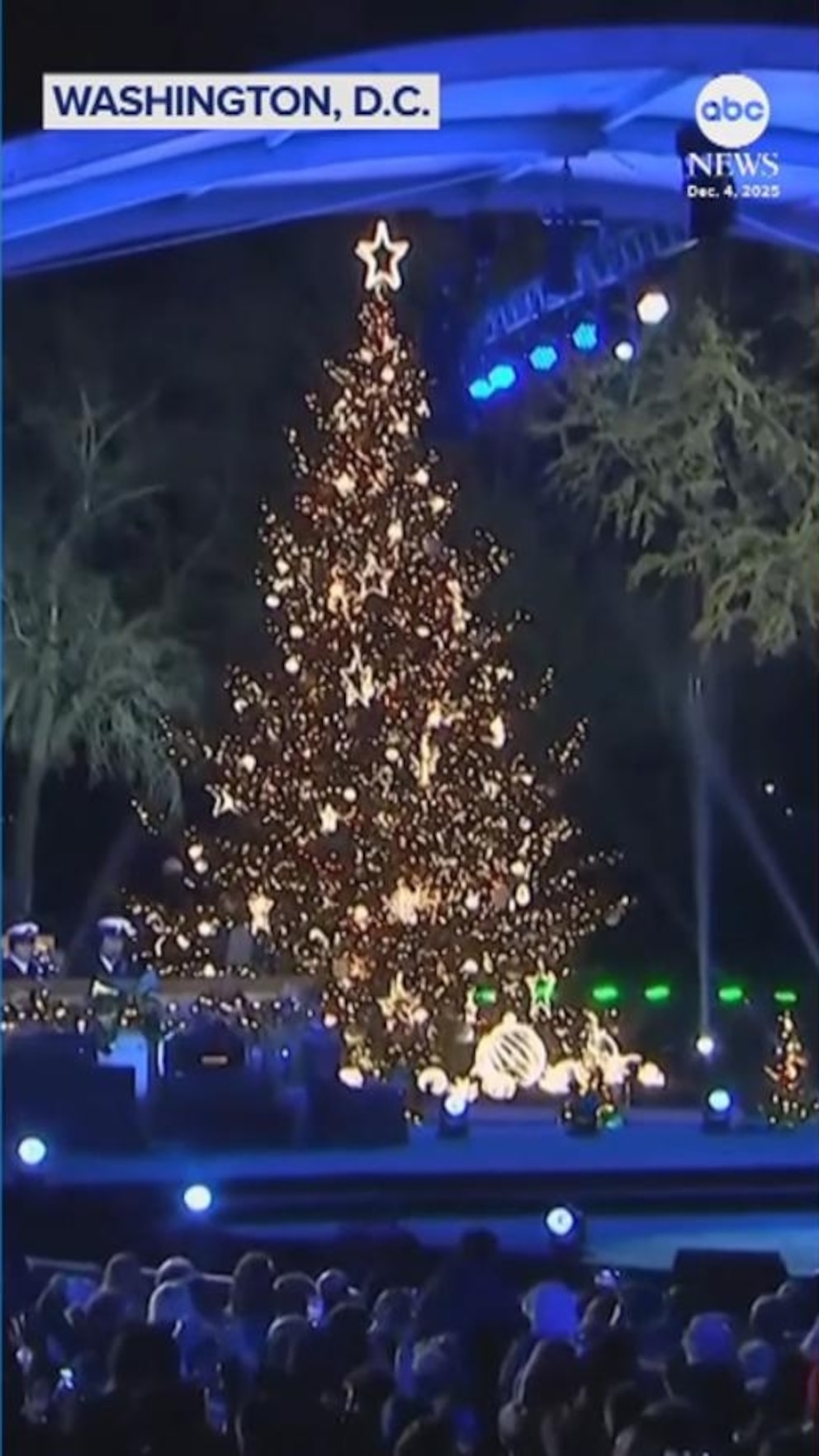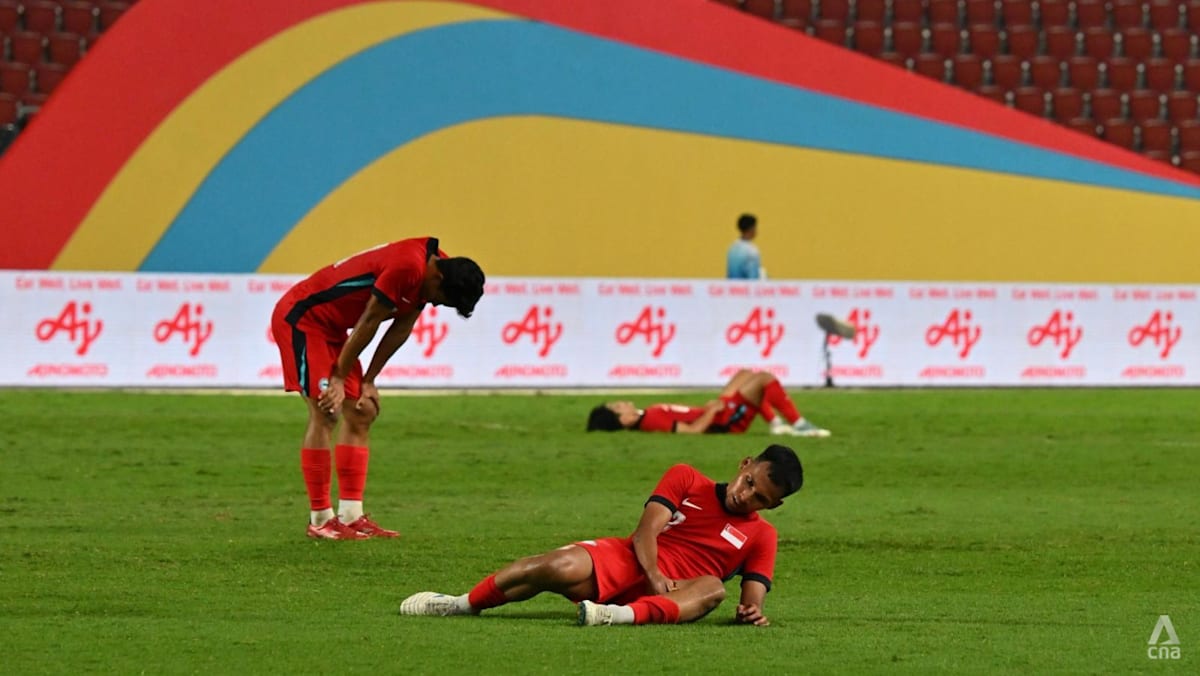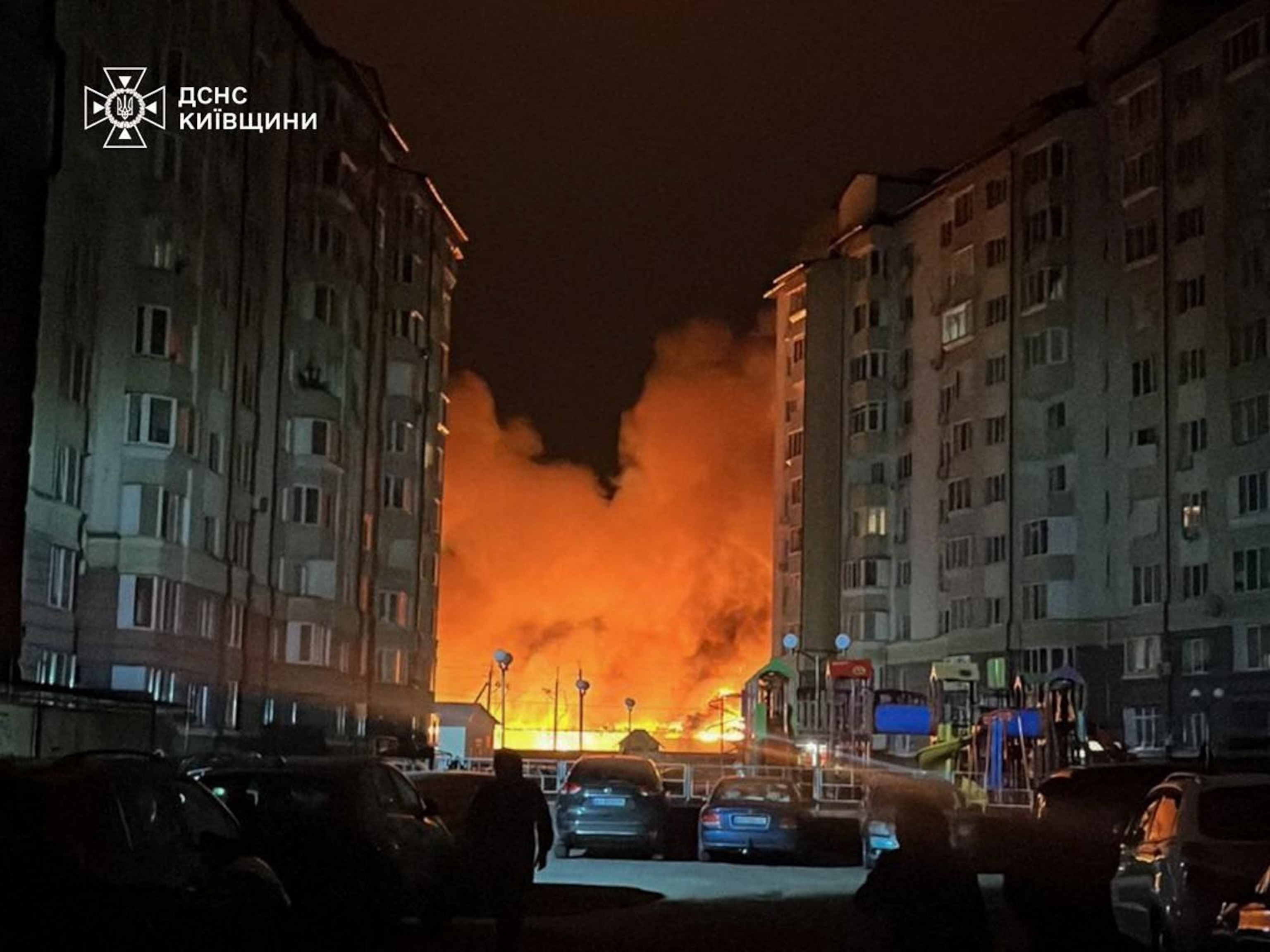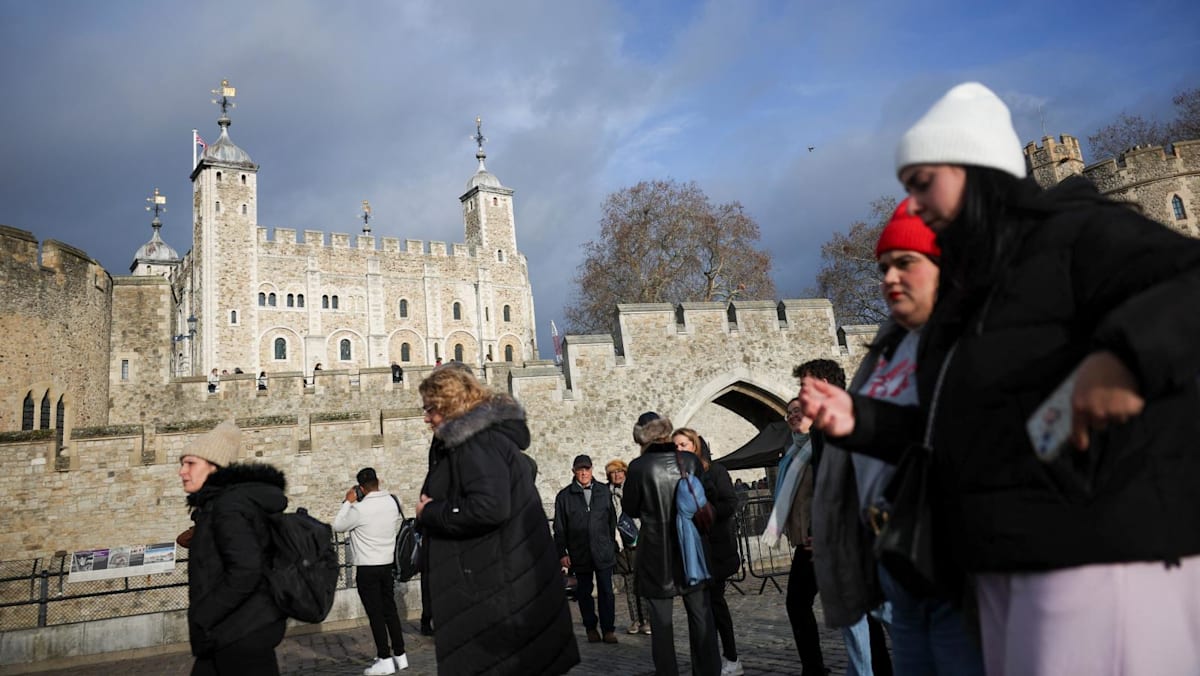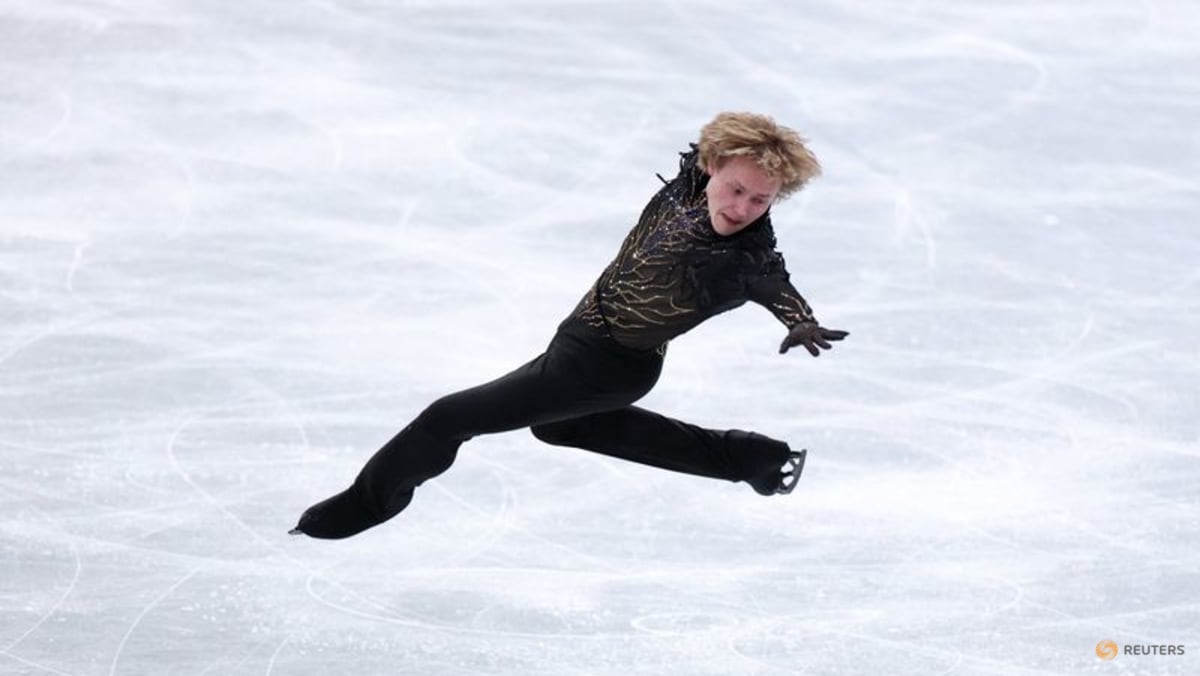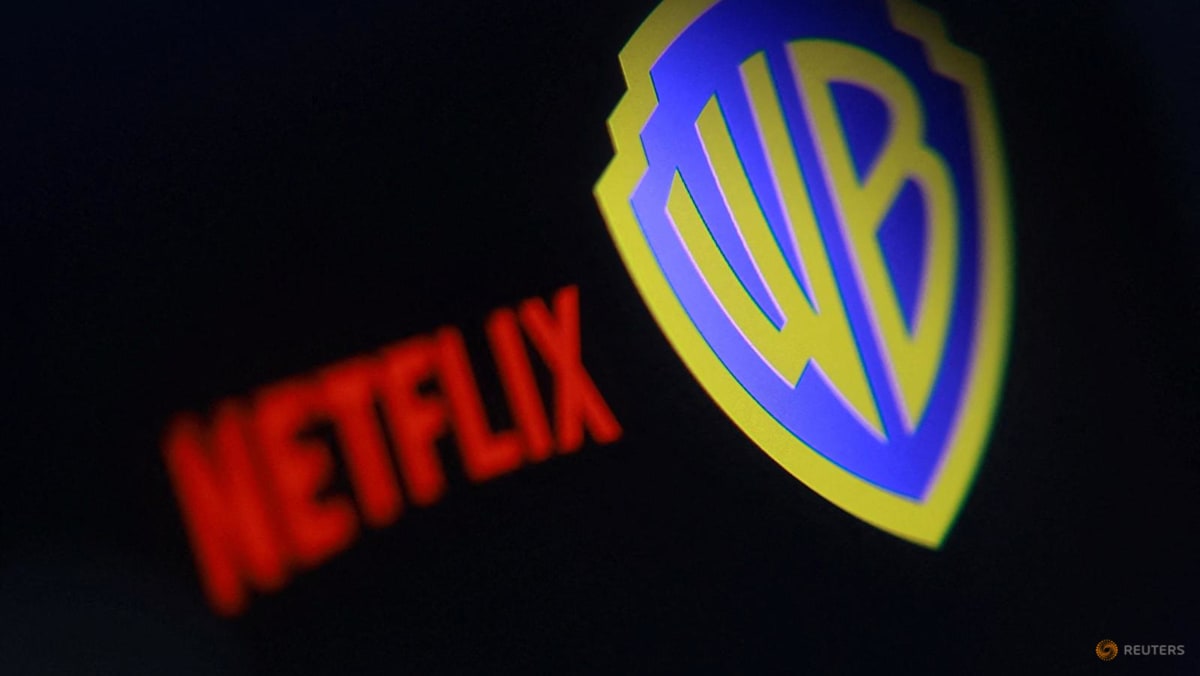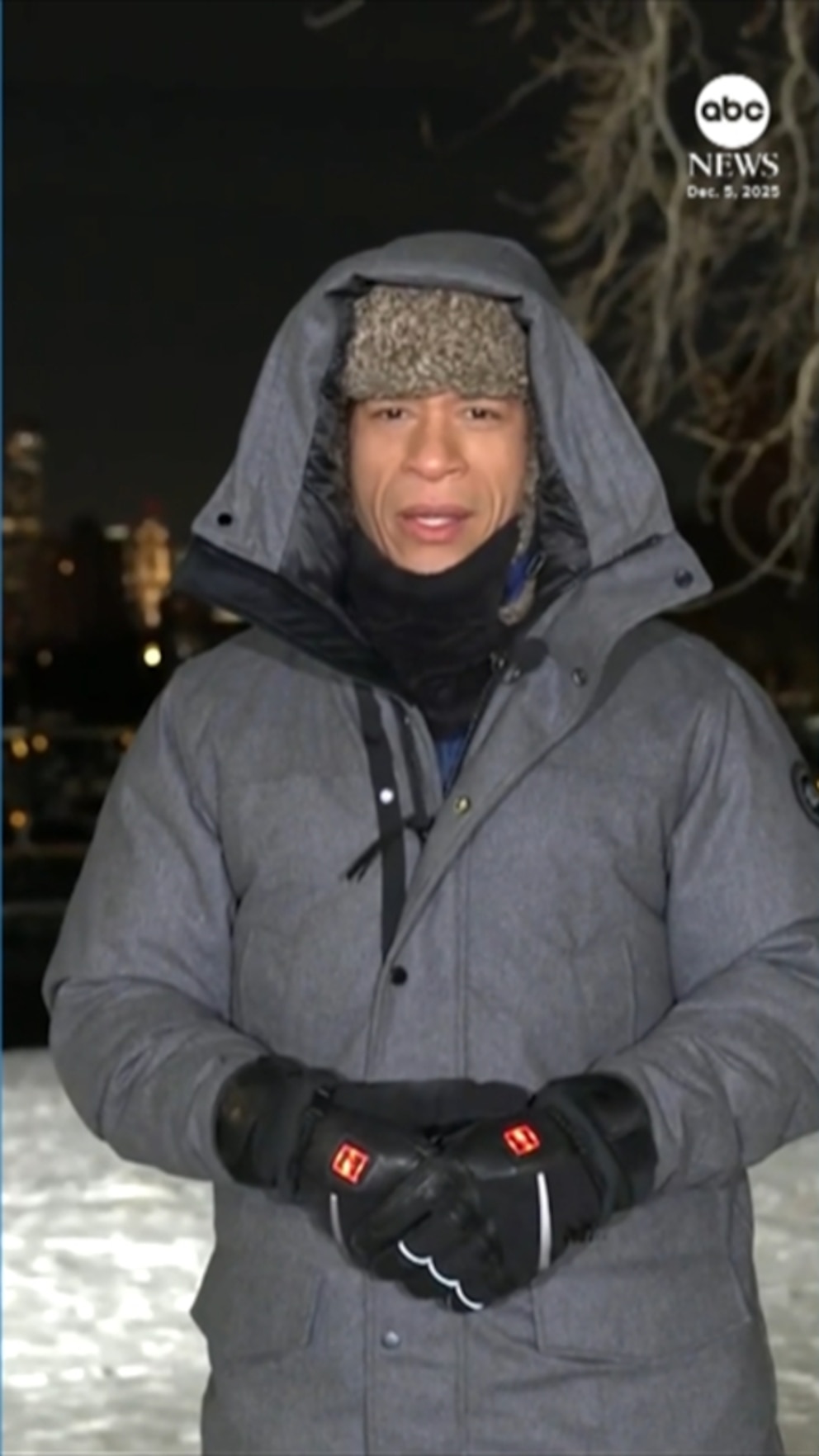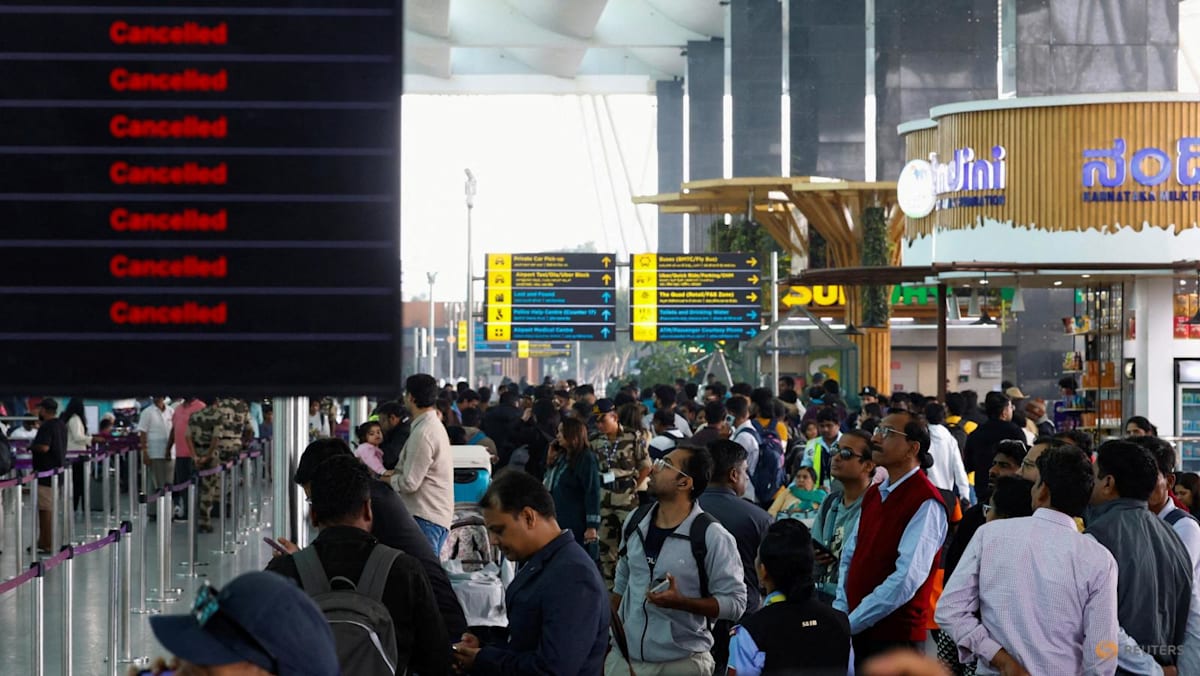What Wagner Group’s armed rebellion could mean for Russia’s endgame in Ukraine
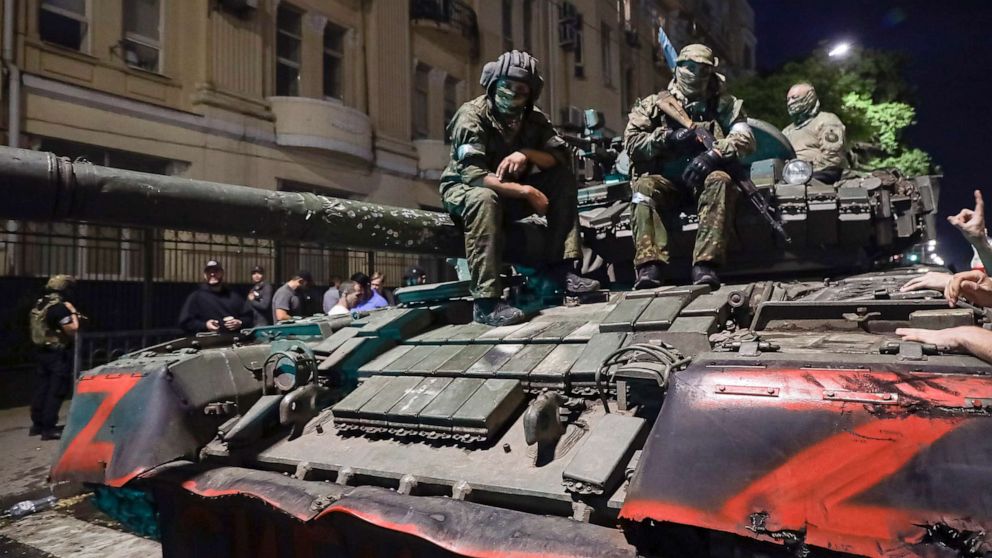
Weeks into Ukraine’s counteroffensive, political turmoil in Russia has raised new questions in the war and what it means for Vladimir Putin’s invasion.
In a fleeting but shocking show of rebellion against Russia’s top military brass, forces with the Russian paramilitary organization Wagner Group left the front line in Ukraine and claimed control of military facilities in Rostov-on-Don, a key Russian city near the Ukrainian border, late last week.
They then marched toward Moscow before the mercenary leader, Yevgeny Prigozhin, ordered them to halt on Saturday and return to their field camps in Ukraine, saying he wanted to avoid shedding Russian blood.
Members of the Wagner Group military company sit atop of a tank on a street in Rostov-on-Don, Russia, June 24, 2023, prior to leaving an area at the headquarters of the Southern Military District.
AP
The 24-hour mutiny marked the most significant challenge to Russian President Putin’s authority in his more than 20 years of rule. In response, Ukrainian President Volodymyr Zelenskyy said that Russia appeared to be suffering “full-scale weakness.”
Amid the brief drama, though, little has changed on the 600-mile front in southern and eastern Ukraine, as Ukrainian forces look for breakthroughs in what “continues to be a very long hard, difficult and bloody fight,” according to retired U.S. Marine Corps Col. Steve Ganyard, an ABC News contributor.
“It’s important to take what was going on with Prigozhin and with Putin and put that into a Russia context, because that’s something that’s going on behind the scenes in Russia,” Ganyard said. “As of now, it’s not going to have any significant effect on the battlefield. The battlefield remains what it was.”
Counteroffensive a ‘long, hard slog’
Ukraine’s probing operations followed a stagnant period during the winter, when the Russians had months to build up three lines of defense, with layers of minefields, tank traps and trenches, according to Ganyard.
“The Ukrainians haven’t even gotten through the first line of defense anywhere along the front lines,” he said.
Whether Ukraine has the equipment and manpower to make a major breakthrough against those fortified defenses will be pivotal in the direction of the war — and its possible end, Ganyard said.
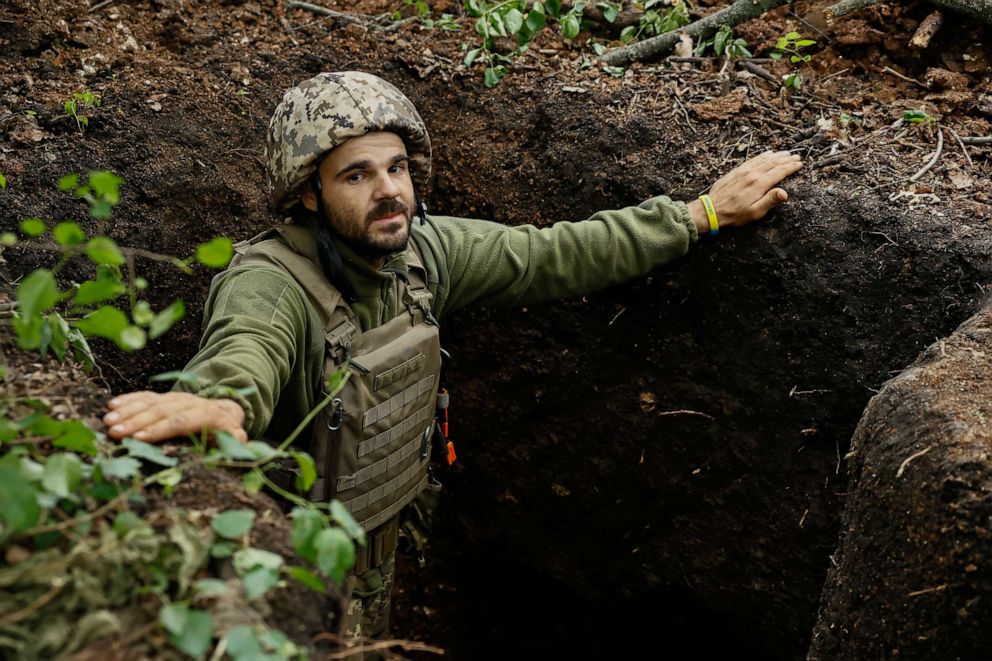
A Ukrainian soldier in a trench at his position on the frontline close to Bakhmut, Donetsk region, Ukraine, June 16, 2023.
Roman Chop/AP
“The world really hasn’t seen a fight like this, hasn’t seen a war like this, for almost 100 years. It’s very reminiscent of the Western Front in World War I, where you had trenches and progress was measured in hundreds of feet per day,” he said.
“Even today, where there’s some quote-unquote breakthroughs going on, we’ve seen the Ukrainians making advances of less than a mile per day,” he continued. “So it’s a long, hard slog. It’s gonna be very bloody, it’s gonna take a lot of men, material, and a lot of people are gonna get hurt along the way.”
As Ukrainian forces advance, they’re looking for weaknesses and lightly manned places along the long front line; it could take weeks or months to make a potentially “catastrophic breakthrough” that could signal success for the Ukrainians, according to Ganyard.
The static battlefield during the winter has given Ukraine time to train soldiers with new equipment from the U.S. and NATO — “theoretically it’s a better military than it was, say, 12 or 14 months ago” — though in some ways, Russia has an advantage being on the defensive and protected behind the multiple layers of trenches, Ganyard said.
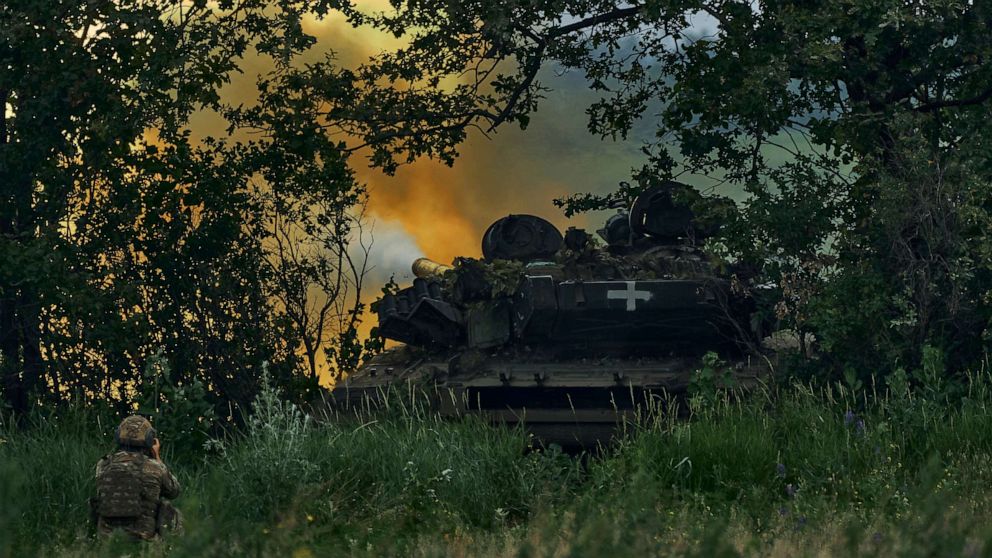
A Ukrainian tank fires toward Russian positions at the frontline near Bakhmut, Donetsk region, Ukraine, Saturday, June 17, 2023. (AP Photo/Libkos)
Libkos/AP
Ukraine also may be at a disadvantage in terms of manpower and lack the 3-to-1 advantage of an attacker over a defender that is a “general truism in war,” he said.
“If things go badly for the Ukrainians, where they continue to lose men and machines at a rate that they can’t replace, then we are looking at another few months where we may end up in stalemate,” Ganyard said. “So it’s really going to depend on how well the Russians defend, whether the Ukrainians can find a breakthrough, and whether the Ukrainians have the means and the will to continue a fight even when they are at a sort of parity in a very defensive position with the Russians.”
The Institute for the Study of War said at the onset of Ukraine’s counteroffensive that the attack will likely vary in size and intensity over “many weeks,” with the initial phase likely to be the “most difficult and slowest” and resulting in the greatest Ukrainian losses as they go up against the prepared defense.
“Militaries have long identified the penetration phase of a mechanized offensive as the most dangerous and costly,” it said. “The success or failure of this phase may not be apparent for some time.”
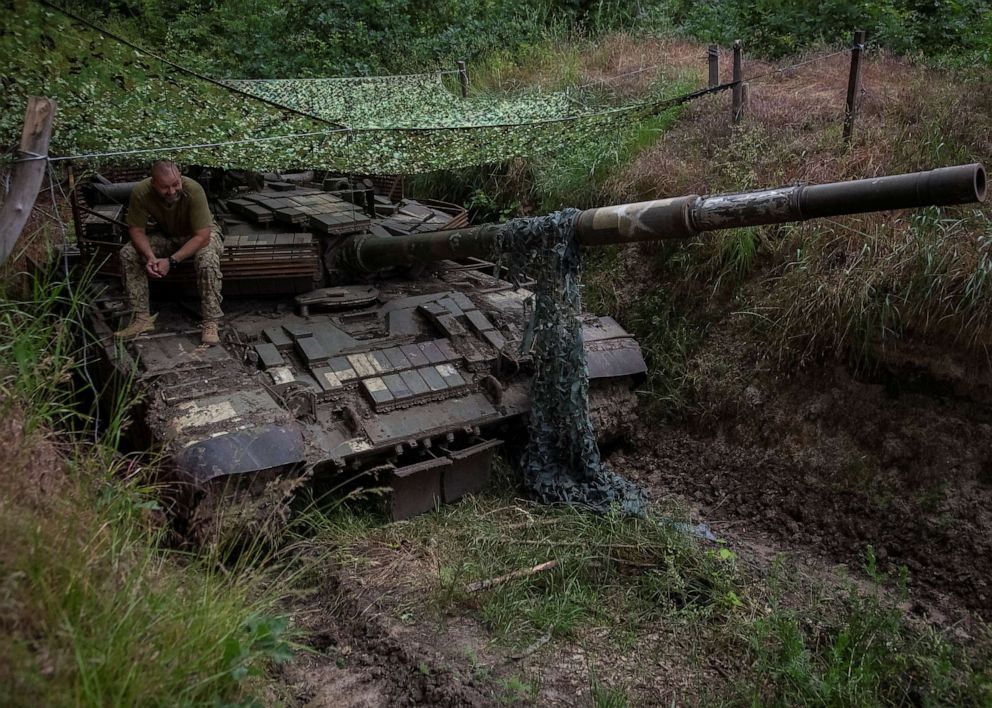
A Ukrainian serviceman sits atop a tank, amid Russia’s attack on Ukraine, in Donetsk region, Ukraine, June 12, 2023.
Oleksandr Ratushniak/Reuters
Zelenskyy admitted in an interview with the BBC last week that progress has been “slower than desired.”
“Some people believe this is a Hollywood movie and expect results now. It’s not,” Zelenskyy said.
Gen. Mark Milley, the chairman of the Joint Chiefs of Staff, said during a news conference in Brussels last week that Ukraine is in the “early stages” of its offensive operations and that it would be “premature” to estimate how long the counteroffensive could last given that “there are several hundred thousand Russian troops dug in and prepared positions all along the front line.”
“This is a very difficult fight. It is a very violent fight. And it will likely take a considerable amount of time at high cost,” he said.
Potential impact of Wagner rebellion
Then there’s the question of the Wagner Group and Prigozhin, whose march toward Moscow represented the “most significant challenge to the Russian state in recent times,” the U.K. Ministry of Defense said on Saturday.
State Department spokesperson Matthew Miller told reporters this week that it’s “too soon to tell” what the impact of the Wagner rebellion could be on the ground in Ukraine.
Prigozhin had clashed for months with Russian Defense Minister Sergei Shoigu and Gen. Valery Gerasimov, chief of the General Staff of the Russian Armed Forces, over the conduct of the ongoing war in Ukraine. Prior to the rebellion, Prigozhin, once a close ally of Putin, accused the Russian military of deliberately shelling his fighters in Ukraine.
After Prigozhin ordered his soldiers to halt their march on Moscow, the Kremlin announced it had made a deal that the mercenary leader will move to the neighboring country of Belarus and receive amnesty, along with his mercenaries, who were also invited to join the Russian army instead. Belarusian President Alexander Lukashenko claimed to help broker the deal.
In his first public remarks following the march to Moscow, Prigozhin referred to the Wagner Group as the “most experienced and combat-ready unit in Russia, and possibly in the world.”
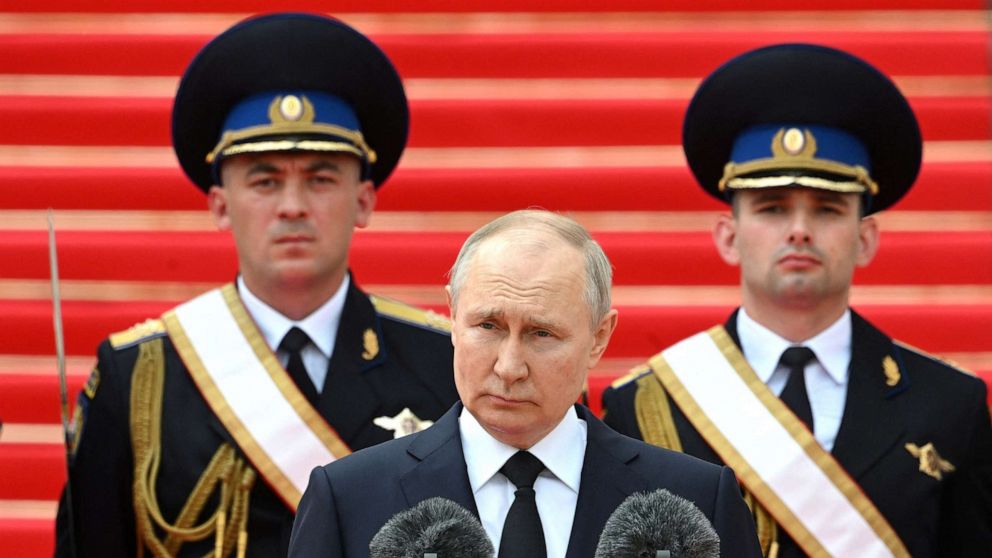
Russian President Vladimir Putin addresses members of Russian military units, the National Guard and security services to pay honor to armed forces, that upheld order during recent mutiny, in Cathedral Square at the Kremlin in Moscow, June 27, 2023.
Sergei Guneev/Sputnik/Pool via Reuters
Taking Prigozhin and any Wagner troops off the battlefield could be to Ukraine’s advantage, Ganyard said.
“The most important thing that comes out of all of this with a disillusion or whatever happens to the Wagner troops, is that they get taken off the battlefield. It’s the only thing that’s good for the Ukrainian fight,” Ganyard said. “The Wagner troops were among the most effective and among the most capable on the battlefield.”
“But right now the defensive fight the Russians are able to put up with their multiple layers of defenses are going to be very, very tough for the Ukrainians to break through,” he added.
The Institute for the Study of War said in a recent assessment that the “ongoing Putin-Lukashenko-Prigozhin powerplay is not yet over and will continue to have short-term and long-term consequences that may benefit Ukraine,” including by potentially tying up heavy weapon and tanks for internal security “that could otherwise be used in Ukraine.”
Ukrainian presidential adviser Mykhailo Podolyak told ABC News that he believes “without a doubt” that the brief armed rebellion marks “the beginning of the end” of the war in Ukraine.
“The problem is this ‘end’ can last for quite some time and we have to understand that,” Podolyak said during an interview in Kyiv on Saturday.
“Russia has accumulated a lot of internal problems, but they are not ready to accept defeat because it would put an end to two decades of its domination in global processes,” he added. “It would mean the end of Russia’s ambitions, because I always said that the end of war must not mean just a victory for Ukraine. It should bring about reformatting Russia itself.”
Putin’s war effort might also suffer if front-line soldiers fighting in Ukraine learn of the armed rebellion.
“How do you motivate these guys who don’t want to be the last guy to die for a losing cause?” a senior U.S. official said Tuesday.
Ganyard noted that the Wagner Group revolt was a mutiny by a mercenary force — not one by regular Russian troops.
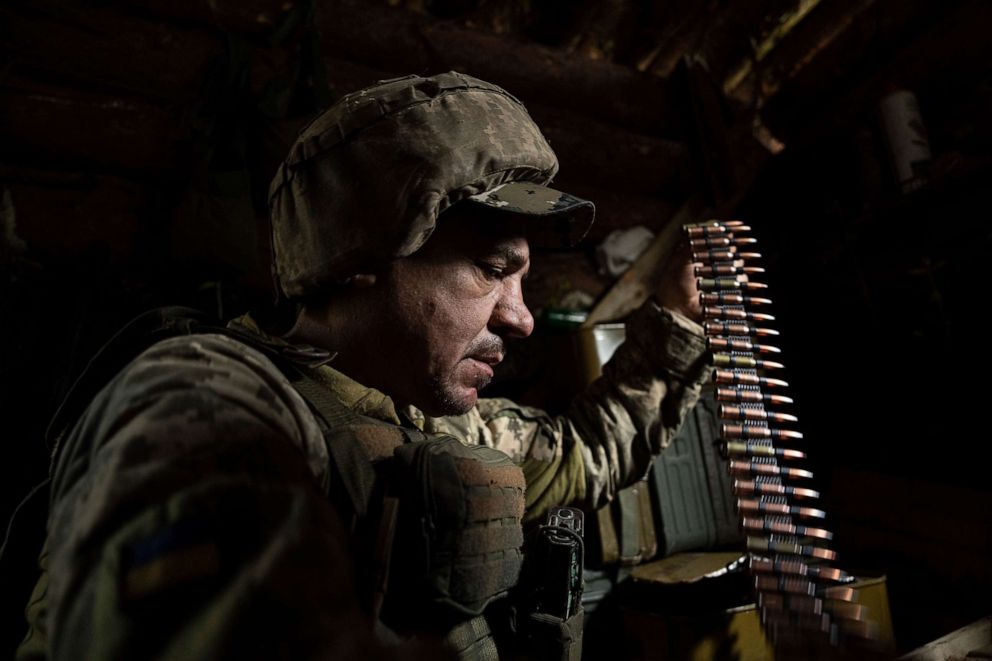
A Ukrainian serviceman of 28th prepares ammunition for the machine-gun at the frontline in Donetsk region, Ukraine, Wednesday, June 21, 2023.
Evgeniy Maloletka/AP
“So we don’t know how the regular Russian troops might have felt about this, if they even heard about it,” he said. “This is very different from something, say, if the Russian military itself had mutiny.”
Milley noted that Russian leadership “is not necessarily coherent,” and Russian troop morale is not high — “many of them don’t even know why they’re there.”
Ganyard said that while Ukraine may not have a 3-to-1 advantage, they do have “moral superiority” — which has been a key factor since Russia launched its invasion in February 2022.
“They are convinced that their cause is just. That is not the case on the Russian side,” Ganyard said. “Napoleon said that ‘[in war] the moral is to the physical as 3 is to 1.’ In other words, saying that whoever has the righteous, just cause has a 3-to-1 advantage over the other side.”
“The Ukrainians clearly feel that they’re trying to take back their country, that the Russians are in the wrong here, that the Russians were the attackers,” he continued. “And so the Ukrainians do have the kind of morale, the kind of support, the kind of esprit that is important to be able to continue these hard slog, bloody kinds of conflicts.”
If a stalemate persists, taking a toll on men and machines on both sides, that could lead to some sort of negotiated settlement, Ganyard said. However, neither Zelenskyy nor Putin can afford that politically at this time, he said.
“In many ways this is like two punch-drunk fighters in the eighth round of a prize fight,” he said. “Both want to continue fighting. Neither has the stamina or the strength left to fight the fight that they were able to fight before.”
ABC News’ Luis Martinez, Martha Raddatz, Matt Seyler, Ian Pannell, Sohel Uddin, Kuba Kaminski and Morgan Winsor contributed to this report.
Source: abc news


